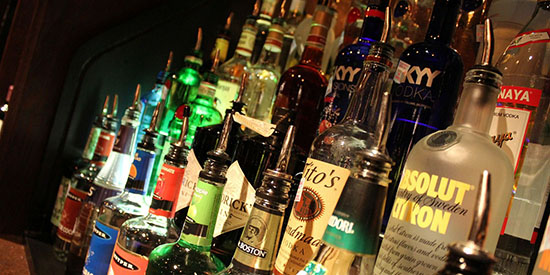Pre-drinking a key driver of alcohol-related harm
Media releaseA new Deakin-led study has confirmed Australians have a major problem with alcohol, prompting the report's author to call for a minimum unit price per standard drink.
'The recommendation is among several measures Professor Peter Miller has outlined in his report, Drug and Alcohol Intoxication and Subsequent Harm in night-time Entertainment Districts (DASHED), the result of an investigation of alcohol-related problems in Canberra and Hobart.
The study was conducted in collaboration with the Australian Institute of Criminology and the University of Tasmania and was supported by the National Drug Law Enforcement Research Fund. It built on previous data compiled in Melbourne, Sydney, Perth, Geelong and Wollongong.
Interviewees in both Canberra and Hobart reported high levels of physical aggression (17 percent in Canberra and 16 percent in Hobart), which was at least as high as that found in studies of the other Australian cities.
Unwanted sexual attention was also very high in or around licensed venues in both Canberra (28 percent) and Hobart (26 percent) with a median of four incidents in the three months prior to interview.
The rates of alcohol-related injury found in the current study (18 percent of those surveyed in Hobart and 17 percent of those surveyed in Canberra) were among the highest of all sites in which data have been collected.
Professor Miller, from Deakin's School of Psychology, said a large proportion of people were pre-drinking before they attended licensed venues, which led to an increase in their exposure to harm.
"We found that, particularly in Hobart, pre-drinking correlated with an increase in reports of verbal aggression and injury.
"We know pre-drinking is a major impediment to the responsible service of alcohol. And we know it is one of the key drivers of alcohol related harm alongside high concentration of venues, high alcohol consumption levels and late trading hours."
Co-investigator Richelle Mayshak said: "The high levels of sexual harassment are deeply worrying and completely out of step with current efforts to curb sexual assault and intimate partner violence".
The report provides a wide range of recommendations to tackle the problem, including:
- Last drinks at all venues set at 2am as a default minimum;
- A minimum price per standard drink;
- Bans on problem patrons entering entertainment districts, with mandatory ID scanner provisions to ensure bans are put in place;
- A public list of venues that are failing to meet licence conditions; and
- Increased penalties, such as trading hour restrictions or temporary closure, for venues with a high number of assaults
As part of the study, more than 1,600 patrons visiting Canberra and Hobart’s main entertainment precincts were randomly selected to participate in a brief interview.
The researchers also conducted observations inside licensed venues, and relevant data were gathered from police, ambulance services, local emergency departments and licensing bodies.
"This study has demonstrated that alcohol-related harm is a major burden in Canberra and in Hobart, at similar or higher levels than other cities around Australia," Professor Miller said.
"This harm comes at considerable cost to the community, both in terms of the physical, psychological and emotional harms of violence and injury, but also in terms of the substantial economic cost and burden on emergency services. And much of this cost is entirely preventable."

